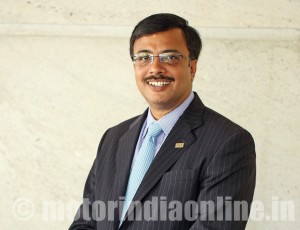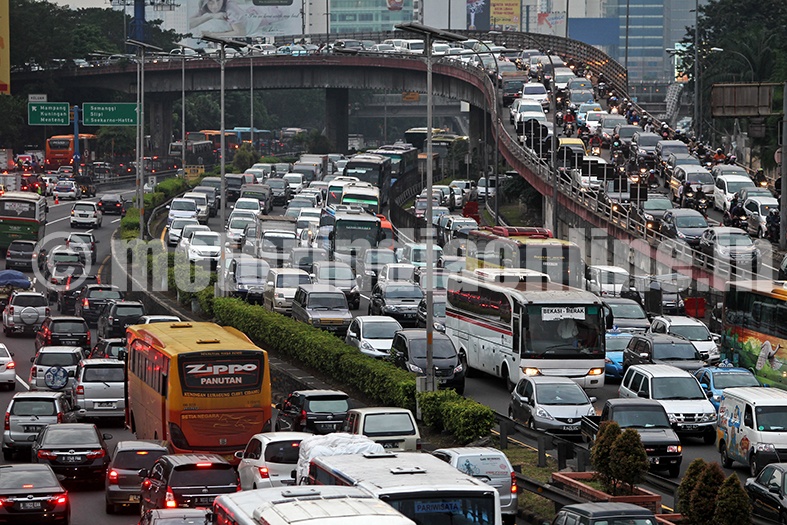Highly challenging, say auto industry leaders
In order to cut vehicular emissions, the Government has stood firm on its decision to implement BS-VI by 2020 despite the auto industry calling it an ‘extremely challenging’ task to move up to the stricter emission norms in just four years.

At a meeting with Mr. Nitin Gadkari, Road Transport and Highways Minister, 26 heads of automobile companies in India suggested that compliance of BS-VI norms be first applicable to all the new models to be launched by 2020 and the existing models to adapt to it immediately afterwards.
Speaking to reporters after the meeting, Mr. Vinod Dasari, SIAM President, said the industry leaders had explained to the Minister that moving from BS-IV to BS-V takes five years, and from BS-V to BS-VI it takes six years. There is no country ever which has gone directly to BS-VI.
“Against 10-12 years, the industry players had suggested doing it in seven years or may be six years. However, Mr. Gadkari asked if we could bring BS-VI by 2020. The industry said it will be an extremely challenging task but we will work a way so that all new models will come with BS-VI from 2020 that is roughly what we have agreed,” Mr. Dasari said.
Commenting on the stand of the auto industry, he said: “We have taken it as a challenge and we will try to find ways to make BS-VI all the new models and the existing models to be phase in immediately after that.”
At the meeting, the first of a series of consultations to be held, the automobile manufacturers sought assurance from the Government on fuel availability across the country when it moves to the stricter emission norms by 2020.
According to official sources, the manufacturers expressed concern that a BS VI-compliant engine could not run on any other specification fuel, unlike BS IV-compliant vehicles that can run on fuel meant for BS III-compliant engine.
They urged the Minister to take oil companies on board to make available BS VI-compliant fuel by the deadline.
The Hyundai Motor India Senior Vice-President (Marketing and Sales), Mr. Rakesh Srivastava, said the industry sought the Minister’s assurance that BS-VI fuel would be available across the country by 2020 stating “parallel technology can’t run” as is being done in different parts of India now.
Toyota Kirloskar Motor Vice-Chairman Vikram Kirloskar said: “We will follow whatever deadline the Government has set. It is going to be difficult, but we will do it.”
Renault India Operations Country CEO and Managing Director Sumit Sawhney said: “The industry has assured the Government that we stand behind them. At the same point of time, we look forward to have pragmatic goals for us.”
Earlier in the day, Mr. Dasari observed: “In the world, wherever the equivalent of BS-IV moved to BS-VI, be it in the US or Europe, it has been done in 10-12 years. Here we have been asked to do it in four years. It is not simple. It is a challenge, but we will take it up.”
In the past also, he said, the industry has moved from BS-II to BS-IV in 10 years, and “the Indian auto sector has been the fastest adopter of technology”.
Asked if the auto industry can meet the challenge, he said: “We don’t know at the moment…but I cannot guarantee that every manufacturer can be up to the challenge.”
Mr. Dasari stated that the auto industry needs a stable policy environment in order to meet regulations as it is a capital intensive industry. “It involves thousand of crores of investments. What we require is a road map. Don’t change the goalpost everyday. We can’t run our companies like that. You cannot simply bring technologies from Europe or the US and use here in India. You have to completely adapt to the Indian conditions and driving cycles in order to meet the BS-VI norms.”
Expressing similar sentiments, Mahindra & Mahindra Executive Director Pawan Goenka said it remains to be seen how things pan out as companies have already begun work to meet BS-V norms.
“Now the cost will escalate as we don’t have time for hit and trials. We will have to import components from outside where technology is available. Also there will not be time to bring innovation to bring down cost,” he said, adding it could need investments of Rs. 50-100 crores per model to meet the BS-VI norms.
Earlier, in a bid to cut vehicular pollution in January, the Government had decided to leapfrog from Euro-IV emission standards for automobiles as well as fuel to stricter Euro-VI by April 1, 2020. All PSU refineries need to invest Rs. 28,750 crores for upgrading the quality of fuel they produce.
India currently has Bharat Stage-III, equivalent of Euro-III specifications, across the country and BS-IV in major cities. BS-IV will be supplied in most big cities by April 2016 and all over the country from April 2017.
BS-IV fuels contain 50 parts per million (ppm) sulphur while BS-V and BS-VI grade fuel will have 10 ppm sulphur.
BS-IV auto fuels are being supplied in the whole of northern India covering J&K, Punjab, Himachal Pradesh, Uttarakhand, Delhi, parts of Rajasthan and western UP. The rest of the country has BS-III grade fuel.
From April 1, 2016, all of Goa, Kerala, Karnataka, Telangana, Odisha, Union Territories of Daman and Diu, Dadra and Nagar Haveli and Andaman & Nicobar will get BS-IV fuel.
The rest of the country will get supplies of BS-IV fuel from April 1, 2017.
– PTI Economic Service
